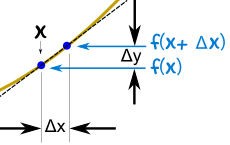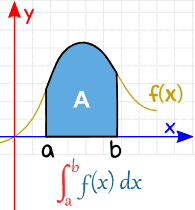Mathematics
Page Navigation
- Welcome
- Math Progression Videos
- Virtual Math Tools
- School District U-46
- Welcome
- AP Calculus
AP Calculus
-
Scope and Sequence and Rubrics
Limits

- Estimate limits of functions graphically and numerically
- Determine limits of functions algebraically
- Apply concepts of continuity (including the intermediate value theorem)
- Applying the definition of derivative
Derivatives
- Calculating and estimating derivatives
- Calculate derivatives using chain rule
- Applying the Mean Value Theorem
Derivative Application
- Solving problems involving rectilinear motion
- Solve problems involving related rates
- Solve problems involving optimization
- Use derivatives to analyze properties of a function
- Analyze various representations of functions using derivatives
Integrals
- Recognize antiderivatives of basic functions
- Recognize antiderivatives of advanced functions
- Approximate a definite integral
- Calculate a definite integral using areas and properties
- Use the Fundamental Theorem of Calculus to analyze functions
- Evaluate an improper integral or show that an improper integral diverges, using L’Hopital when appropriate.
Integral Application

- Use and interpret the definite integral to solve problems in various contexts
- Estimate solutions to differential equations using Euler’s method and slope fields.
- Apply definite integrals to problems involving motion
- Apply definite integrals to problems involving area and volume
- Analyze differential equations and obtain general and specific solutions including logistic functions
Series
- Determine whether a series converges or diverges
- Construct & use Taylor polynomials
- Determine or estimate the sum of a series using error
- Write a power series representing a given function and determine the radius and interval of convergence of a power series
Polar, Parametric and Vectors
- Calculate the derivatives of vectors, parametric, and polar functions
- Use derivatives to analyze the particle motion using vectors and parametric functions
- Use the definite integrals to find the distance & position of a particle moving along a curve given by a parametric of a vector values functions
- Find the area bounded by a polar curve and arc length of a curve defined parametrically
AP Synthesis
- Cumulative Assessment of Standards

